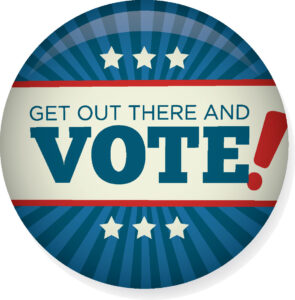
Endorsing candidates running for public office used to be a standard practice in the media, notably by local newspapers. The trend in recent years, though, is that fewer and fewer media choose to endorse.
To glean some insight into the impact that endorsements have on voters, we went to Google’s AI (artificial intelligence) tool, named Bard. It tells us that endorsements can wield greater influence when candidates are less known. Another variable, logically, is the perceived credibility of the endorser in the eyes of the voter.
Academic analyses on the effect of endorsements, says Bard, produce inconclusive results.
A University of Michigan study found endorsed candidates stood a better chance of winning. More specifically, the University of California said that endorsements by unions significantly helped candidates vying for a seat in the U.S. House of Representatives.
Research by the University of Chicago, reports Bard, concluded that newspaper endorsements “had no significant impact on the outcome of presidential elections.”
The general consensus, via Bard, is that the value of endorsements varies according to circumstances. They mean more, apparently, in local elections than they do in national, as well as when the candidate has a low profile, and when the endorser is trusted by the voter.
Of course, in the end, says Bard, it is the voter’s own political beliefs and values that determine to what degree endorsements make a difference in how each ballot is cast.
That’s also how we feel about it, which is why we are among the growing ranks of media whose practice it is not to endorse candidates. How we see our role in election coverage is reflected in the eight pages of candidate statements you’ll find in this issue, featuring hopefuls who are facing opponents. In our November issue, we will feature statements submitted to us by candidates who are unopposed.
 What we offer readers in the way of these candidate profiles is just one source of information to digest. We encourage you to do as much research on the candidates as possible in the interest of rendering your own well-informed decision on who is best equipped to represent you and your interests. Some voters will place ideology above a candidate’s resume by reflexively voting party line. Others (notably independents like yours truly) are more comfortable voting for the person, regardless of party affiliation.
What we offer readers in the way of these candidate profiles is just one source of information to digest. We encourage you to do as much research on the candidates as possible in the interest of rendering your own well-informed decision on who is best equipped to represent you and your interests. Some voters will place ideology above a candidate’s resume by reflexively voting party line. Others (notably independents like yours truly) are more comfortable voting for the person, regardless of party affiliation.
Whatever your process, your ballot does count. Whatever the election outcome, the right to vote is a gift too precious to squander. Whether or not endorsements from third parties influence how you cast your ballot, we believe the truest path is to vote your conscience, not someone else’s.




